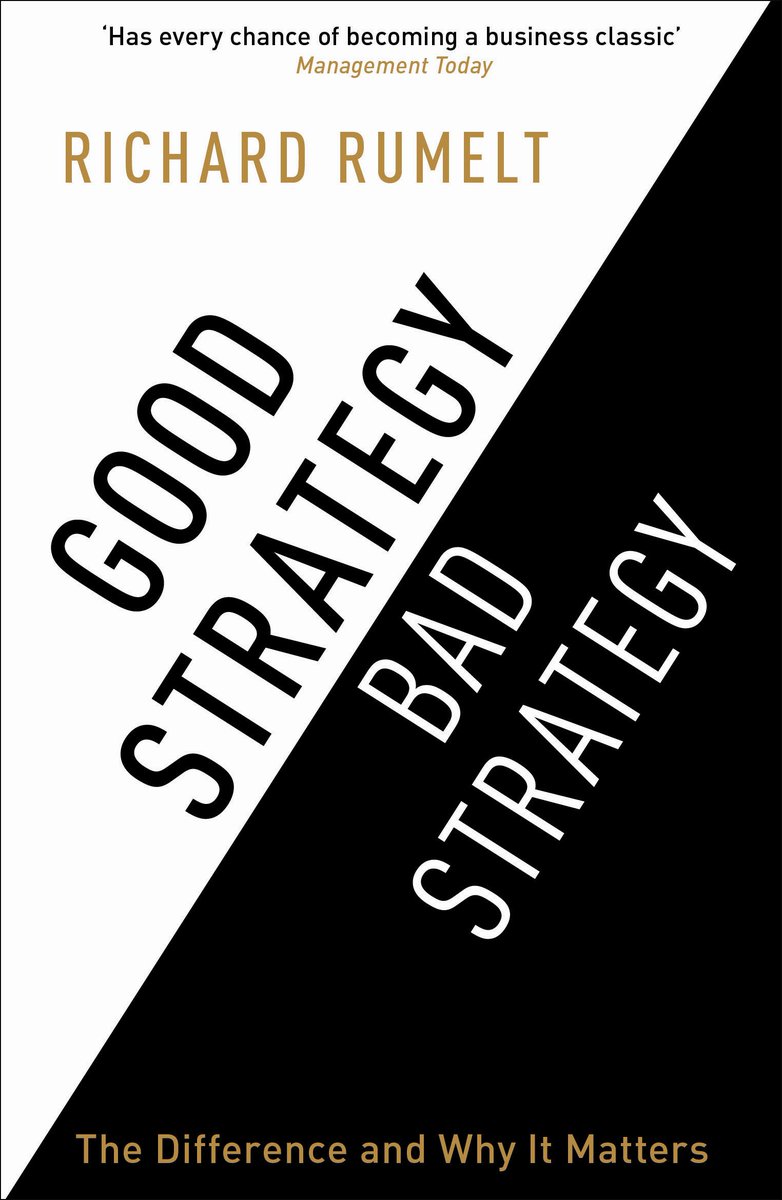What you need to know about strategy to help your startup

"Strategy" sounds like something that larger companies do. Actually, most large companies have awful "strategies". Most employees and even C-level execs don't understand it beyond it being a slide in the company's presentation deck next to the SWOT analysis.
Startups can't afford this. Goliath can get away with just bashing at things until they die. David needs a clever strategy to have a chance of making it out in one piece.
Startups are all David, not Goliath. They need EXCEPTIONALLY GOOD strategy.

Large corporations can afford to make a LOT of mistakes and still be ok.
Startups are so resource-starved they need to figure out the ONE thing that will win the game and laser-focus on that one thing.
Startups don't starve for good ideas... they drown in them. It's far more likely for a startup to die because they were trying to do too much and didn't focus enough.
Founders need to say "no" to almost everything.
So how do they figure out what to say "yes" to? Enter strategy.
So what's strategy?
Borrowing from @RichardRumelt's excellent "Good strategy, Bad Strategy", a strategy is:
1) an insightful diagnosis
2) turned into a guiding policy/plan
3) implemented by coherent actions
Let's break those down.

1) Insightful diagnosis:
This is the root of all strategy. It's the "aha" moment, where you see something others don't. This is where most of the magic happens, and before you have this, you almost certainly don't have a "strategy". It's the spark that powers the strategy.
It could be an insight about how things are about to change, or how other products are getting it wrong, or how you can stand out (for marketing strategy)...
In my experience, it's usually something that happens by... thinking about it.
You can wait for the insight to strike you in the shower, but the best method I've found so far is to take some pieces of paper and write down all the "important things" about your startup and its competition, and lay them all out on the floor or the wall and...

...stare at them.
Maybe you'll have the insight in 30 seconds. For me it often takes a few days/weeks of regularly looking at that wall and trying to figure out the "clever angle", the insight that shifts the rules of the game in my favour. And until that insight is there... there is no strategy.
Once you have the insight... you'll know. Because you'll probably feel quite excited that you've spotted something no one else seems to have seen. And your brain will hopefully start coming up with lots of different ways to take advantage of that insight.
Enter step two.
2) Guiding policy/plan
Insight is mostly useless if you do nothing with it. But there are so many ways to exploit any given insight! So the next step is to figure out a plan that makes sense and that best takes advantage of your insightful diagnosis.

Use your judgment to select the plan you're most capable of executing successfully. That depends on your circumstances - your team, skills, resources, etc. What can you realistically do? Come up with options and then pick the best 1 or 2, maybe 3.
The plan can take many forms, but it should not be all that complicated.
"They have concentrated their forces here so we'll flank them and attack them over there."
It should be clear enough to fit in one or two clear sentences that everyone can understand.
And of course, you should try to ensure those plans don't work against each other - it's common for bad strategies to end up having parts that pull in different directions. Don't do that: you can't afford it!

Once you've got an insight, and a plan on how to exploit it, finally you need action to make it real. Otherwise you still just have fanciful dreams, rather than any real impact.
Enter coherent action.
3) Coherent action
If you've done the first two steps, you have a chance at doing the third.
This may seem unnecessary - after all, you know what the strategy is now, surely people can just keep it in mind and adapt?
Well...
Even though you've spent days or weeks obsessing over the strategy, your level of commitment won't magically transfer to everyone else on your team.
So for the strategy to actually happen, you also need for people to actually do it.

Missing this step will mean a lot of frustration (and boy have I experienced that) as you observe that no one is implementing your brilliant plan and things obstinately carry on remaining exactly the same.
@mentionsDepending on the size of your startup, this may be achieved through a daily standup, or OKRs, or by getting your managers on board, or maybe even just rolling your sleeves and doing it yourself if you're still lucky enough to be by yourself!
The thinking needs to translate into tangible actions that bring about real-world change. And reality will do its best to fight you and stay the same. People have routines, habits, preferences that they've settled into.
The inertia of people (even myself!) is... staggering.
Without this third step, all the thinking you've done will have been for nothing.
Use whatever execution system/tools/management/whatever you need to make sure change does happen.
And then...
Well, one of the downsides of strategy, and perhaps why so few ppl bother with it, is how slow the feedback loop is, rather too often.
Sure, in some contexts you might find out right away whether this new strategy works. But in others it might take years.
Even worse, since reality sometimes changes (!) it is possible for what was previously a good strategy to become a bad strategy... so you need to be aware of this and be willing to change... but not too soon, or else you won't have given the strategy a chance!
So... be patient (if you can afford it).
Hopefully you will see some early encouraging signs that help you validate the strategy.
But ultimately, committing to any long term plan does carry a risk.
But then again, so does having no plan.
If you think coming up with a good strategy is expensive... try having no strategy, or, perhaps even worse, a bad one.
It's what many businesses do, and is one reason why many businesses fail, or at least fail to grow.
